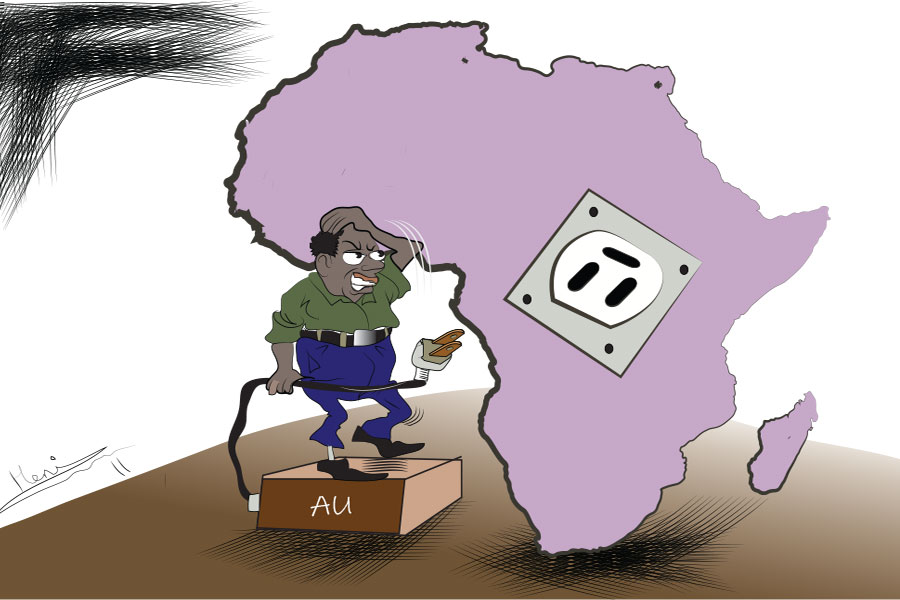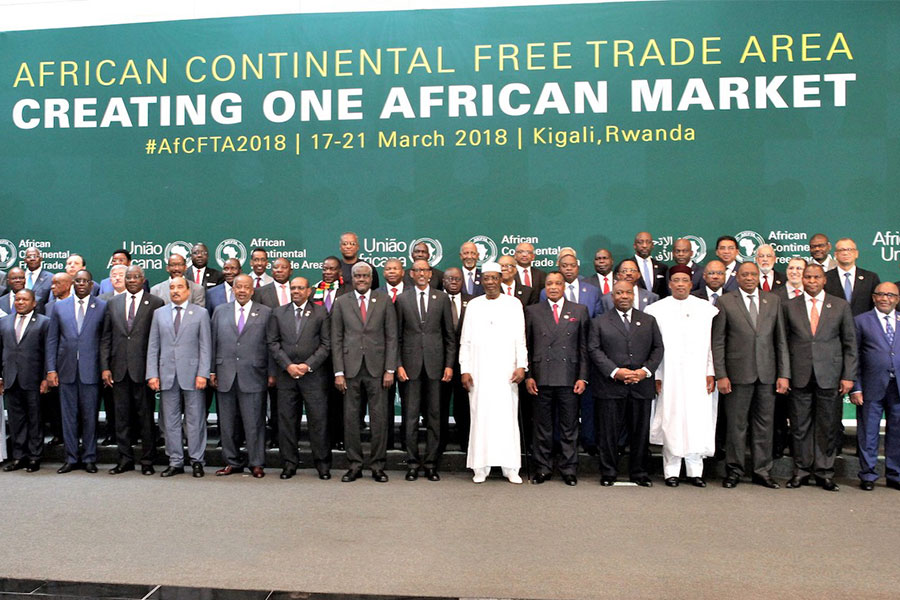
Commentaries | Dec 14,2019
Mar 5 , 2022
By Tigist Solomon
Presently, there are 218 million children around the world engaged in child labour, with over half of them involved in hazardous work, according to Save the Children. Almost half of those engaged in child labour are in Africa, followed by Asia, with many of them in the agriculture sector. Boys are more likely to experience this indignity at much higher rates than girls.
Not surprisingly, the effort has been to limit and eventually eradicate child labour. The African Charter on the Right of the Child (ACRC) prohibits children to work if they are under the age of 14. Countries like Ethiopia have thus limited the minimum working age to 14 years old. Despite the law, millions are not protected. These children experience either voluntary or forced labour with the involvement of traffickers, family members or a close acquaintance, often with false promises.
The reasons for this are many. It includes poverty, lack of family planning, limited access to education and difficult living conditions with reconstituted families (stepfamilies) as significant factors contributing to child labour in Africa. Often, with limited access to education and basic needs, parents force their children to engage in child labour to generate income for themselves and, more importantly, for their families.
The consequences of this on education are massive. In 2021, almost 28pc of children aged five to 11 and 35pc of those between the ages of 12 to 14 involved in child labour globally were not educated, according to the United Nations International Children's Fund (UNICEF). It provides a vicious cycle as lack of education also contributes to child labour.
The problem is also salient with vulnerable children such as orphans or those with stepfamilies, as the decision to engage in child labour may be spontaneous due to economic deprivation and difficult living conditions, although peer influence also exists. The high demand for child labour in major cities in Africa is also a push factor. Finally, situations such as migration and conflict also worsen the crisis. In 2020, the UN reported that of the 8,521 child soldiers worldwide, 40pc of them are in Africa. Countries like the Democratic Republic of Congo (DRC), Burkina Faso, Cameroon, and countries surrounding Lake Chad have the highest prevalence rate among child soldiers.
All of this is despite the adoption of the Worst Forms of Child Labour Convention by the UN's International Labour Organisation (ILO) in 1999 to prohibit the use of children under the age of 18 in armed conflict, prostitution, pornography, illicit activities such as trafficking in drugs and hazardous work. Alternatives in the fight against child labour in Africa have been implemented by governments and local and international organisations. The African Union (AU) has also established a 10-year plan (2020-2030) to eradicate all forms of child labour, including forced work, human trafficking and modern slavery.
Still, child labour remains a common practice in Africa, including Ethiopia. The experience of children shows that it is not enough to establish rules and regulations to prevent child labour. Instead, multi-sectoral activities between for-profit organisations, government agencies working on the rights and well-being of children, community institutions and parents should be undertaken to promote awareness.
Governments and non-profit organisations have a responsibility to create awareness among businesses and private employers who might hire children about the negative impacts of child labour on children's well-being and future. Given the limited budget available to most countries in Africa, there is a need to promote education for all children by seeking financial support from profitable ventures. After all, once they have completed their education and reached the minimum working age, these children are more likely to contribute their skills and knowledge to the community and the economy. Above all, finding solutions to child and family poverty is key to overcoming child labour and promoting children's rights in Africa. Subsequently, advocacy plans and strategies to eradicate child labour from Africa are essential for all member states of the African Union.
PUBLISHED ON
Mar 05,2022 [ VOL
22 , NO
1140]


Commentaries | Dec 14,2019

Featured | Sep 06,2020

Viewpoints | May 29,2021

Radar | Oct 28,2023

Editorial | May 20,2023

Editorial | Jun 08,2019

Commentaries | Dec 07,2024

Fortune News | Mar 23,2019

My Opinion | Jul 13,2024

Viewpoints | May 01,2020

My Opinion | 132272 Views | Aug 14,2021

My Opinion | 128692 Views | Aug 21,2021

My Opinion | 126600 Views | Sep 10,2021

My Opinion | 124206 Views | Aug 07,2021





Dec 22 , 2024 . By TIZITA SHEWAFERAW
Charged with transforming colossal state-owned enterprises into modern and competitiv...

Aug 18 , 2024 . By AKSAH ITALO
Although predictable Yonas Zerihun's job in the ride-hailing service is not immune to...

Jul 28 , 2024 . By TIZITA SHEWAFERAW
Unhabitual, perhaps too many, Samuel Gebreyohannes, 38, used to occasionally enjoy a couple of beers at breakfast. However, he recently swit...

Jul 13 , 2024 . By AKSAH ITALO
Investors who rely on tractors, trucks, and field vehicles for commuting, transporting commodities, and f...

Jul 12 , 2025
Political leaders and their policy advisors often promise great leaps forward, yet th...

Jul 5 , 2025
Six years ago, Ethiopia was the darling of international liberal commentators. A year...

Jun 28 , 2025
Meseret Damtie, the assertive auditor general, has never been shy about naming names...

Jun 21 , 2025
A well-worn adage says, “Budget is not destiny, but it is direction.” Examining t...

Jul 13 , 2025 . By YITBAREK GETACHEW
The Addis Abeba City Revenue Bureau has introduced a new directive set to reshape how...

Jul 13 , 2025 . By BEZAWIT HULUAGER
Addis Abeba has approved a record 350 billion Br budget for the 2025/26 fiscal year,...

Jul 13 , 2025 . By RUTH BERHANU
The Addis Abeba Revenue Bureau has scrapped a value-added tax (VAT) on unprocessed ve...

Jul 13 , 2025 . By NAHOM AYELE
Federal lawmakers have finally brought closure to a protracted and contentious tax de...